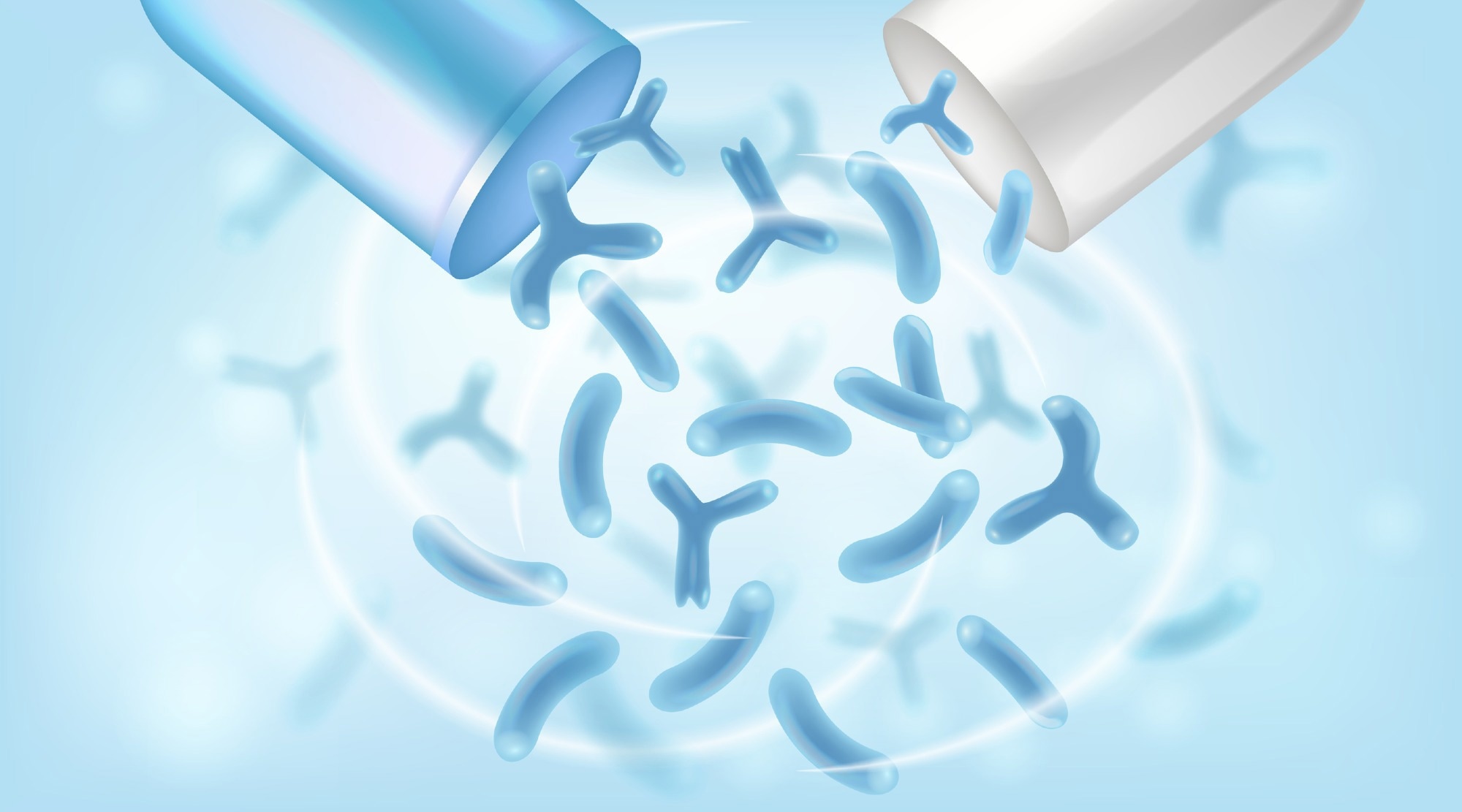Prebiotics have been shown to improve gut health, immune function, reduce inflammation and support weight management. Furthermore, including prebiotic-rich foods in your diet can be a natural way to support a healthy gut microbiome and overall well-being.

Image Credit: Uprate/Shutterstock.com
What Are Prebiotics?
In recent years, there has been increased interest in gut health and the role of the gut microbiome. The gut microbiome refers to the trillions of bacteria, fungi and other microbes that inhibit our digestive tract, playing a crucial role in our overall health and wellbeing.
Emerging research has highlighted the important connections between the gut microbiome and various aspects of health, such as digestion, immune function, mental health and more.
Prebiotics are a specific type of dietary fiber that serve as food for the beneficial bacteria that live in the gut, increasing their growth and activity. They are in the form of non-digestible carbohydrates, which pass through the small intestine undigested, where they are fermented by gut bacteria in the colon to produce short-chain fatty acids (SCFAs). These SCFAs are highly beneficial to gut health.
Essentially, prebiotics provide nourishment for the good bacteria in the gut, helping them to thrive and promote a healthy gut microbiome.
Prebiotics vs Probiotics
There is also an important link between prebiotics and probiotics. Probiotics are living organisms, such as bacteria or yeast, that can have health benefits when ingested in adequate amounts. Probiotics help to populate the gut with beneficial bacteria, support a balanced gut microbiome and contribute to gut health.
Prebiotics can act as food for probiotics, allowing them to survive and multiply in the gut. This combination is often referred to as symbiotics, as they work synergistically to support a healthy gut microbiome.
Types of Prebiotics
There are several different types of prebiotics, including inulin, fructooligosaccharides (FOS) and galactooligosaccharides (GOS).
Inulin is found in a range of plant-based foods, including chicory root, Jerusalem artichoke, and agave. It comprises a chain of fructose molecules linked together and human digestive enzymes cannot break it down, meaning it reaches the colon largely intact, serving as a food source for Bifidobacteria and Lactobacilli.
FOS are another type of prebiotic fiber composed of short chains of fructose molecules. They are naturally found in fruits and vegetables, such as bananas and onions. When FOS reach the colon intact, they are fermented by beneficial bacteria. This process produces short-chain fatty acids (SCFAs), important for gut health.
GOS are composed of short chains of galactose molecules found in human breast milk, legumes and some dairy products. Similarly to FOS, they are fermented by beneficial bacteria, producing SCFAs and promoting the growth of Bifidobacteria and other beneficial bacteria.
While these prebiotic fibers are naturally occurring in foods, prebiotics can also be obtained through dietary supplements in the form of powders, capsules, or tablets.
The Health Benefits of Prebiotics
As previously highlighted, prebiotics are linked to improved gut health. They do this by promoting the growth and activity of beneficial bacteria in the gut, such as Bifidobacteria and Lactobacteria. They aid in nourishing these beneficial bacteria, allowing them to thrive and outcompete harmful bacteria, maintaining a healthy gut microbiome.
Prebiotics enhance the production of SCFAs which have been shown to have significant health benefits.
SCFAs such as acetate, propionate and butyrate play a crucial role in maintaining the health of the gut lining. They also have anti-inflammatory properties, inhibiting cytokines and promoting the production of anti-inflammatory substances that can help reduce inflammatory bowel disease and other conditions.
Immune function can be influenced by SCFAs as they can help to regulate the activity of T-cells and promote a healthy balance of immune responses, contributing to overall improved immune function.
Studies have shown that SCFAs reduce fat storage in adipose tissue, potentially lowering the risk of obesity. Prebiotics have been shown to improve metabolic health in other ways, such as helping to manage type-2 diabetes by improving glucose metabolism and insulin sensitivity. They can even lower the risk of cardiovascular disease by influencing cholesterol levels.
The Link Between Prebiotics and Mental Health
Emerging research indicates a strong correlation between the gut and brain, referred to as the gut-brain axis. Here, the enteric nervous system in the digestive tract communicates biochemically with the central nervous system, including the brain.
The significance of the microorganisms found in the gastrointestinal system in terms of impacting health and disease, such as mood, cognition, and psychopathology, is now widely acknowledged.
A review conducted in 2019 concluded that there is a link between gut bacteria and mental health.
The research team reported that individuals with psychological disorders exhibit changes in their gastrointestinal microbiota composition. Furthermore, it has been discovered that consuming prebiotics can alter the gut microbiota in a manner that can have a favorable impact on mental health conditions.
Although further investigation is required to comprehensively understand the mechanisms responsible for the advantages of prebiotics, the existing evidence proposes that integrating prebiotics into our diets can substantially affect our health. By supplying our gut microbiome with prebiotics, we can take a crucial measure toward promoting overall health and wellbeing.
References and Further Reading
Li, H.-Y., Zhou, D.-D., Gan, R.-Y., Huang, S.-Y., Zhao, C.-N., Shang, A., Xu, X.-Y. and Li, H.-B. (2021). Effects and Mechanisms of Probiotics, Prebiotics, Synbiotics, and Postbiotics on Metabolic Diseases Targeting Gut Microbiota: A Narrative Review. Nutrients, 13(9), p. 3211. https://www.mdpi.com/2072-6643/13/9/3211.
Tabrizi, A., Khalili, L., Homayouni-Rad, A., Pourjafar, H., Dehghan, P. and Ansari, F. (2019). Psychobiotics, as Promising Functional Food to Patients with Psychological Disorders: A Review on Mood Disorders, Sleep, and Cognition. NeuroQuantology, 17(6). https://doi.org/10.14704/nq.2019.17.6.2189.
Tan, J., McKenzie, C., Potamitis, M., Thorburn, A.N., Mackay, C.R. and Macia, L. (2014). The Role of Short-Chain Fatty Acids in Health and Disease. Advances in Immunology, 121, pp. 91–119. https://www.sciencedirect.com/science/article/abs/pii/B9780128001004000039?via%3Dihub.
Last Updated: Nov 20, 2024